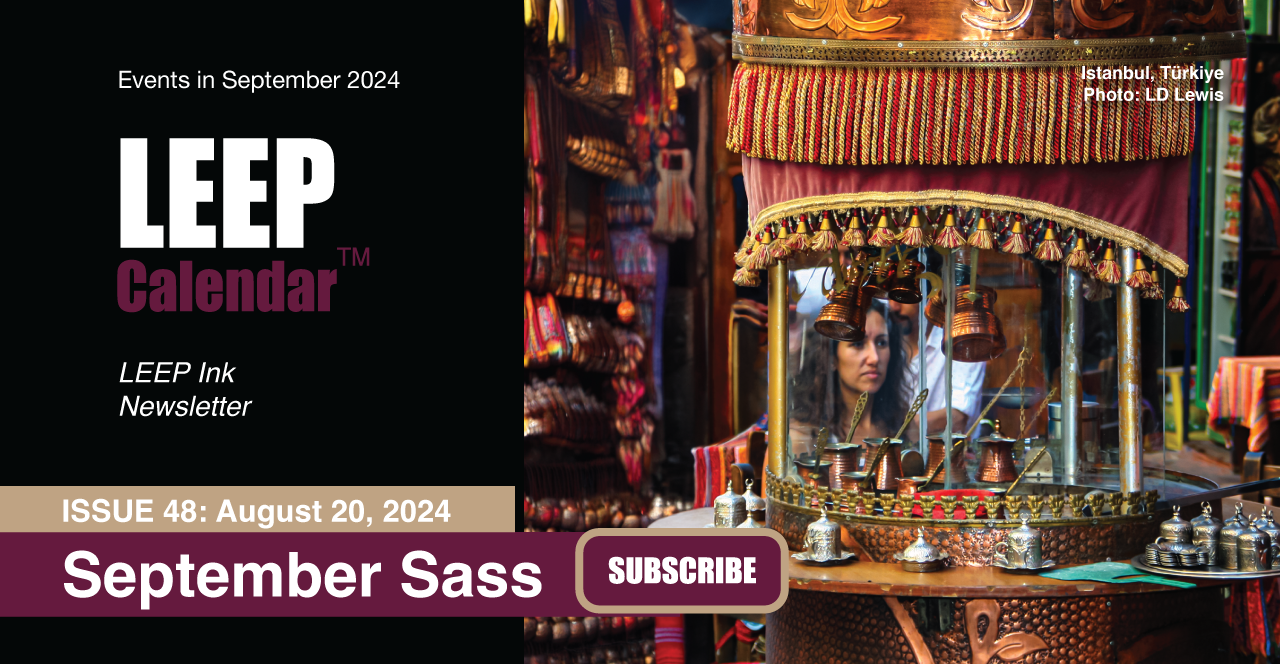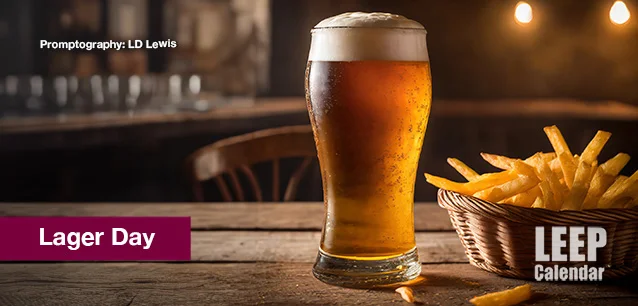 AD
AD
Today is: November 05
Scroll to explore events active on this date.
Additional Events on LEEP
LEEP INK FEATURES

August is Appropos
A toddler playing in the fountain at a park in Santa Fe, New Mexico—Photo LD Lewis. In August, we live through the Dog Days of Summer. It's hot and often humid, and those ...

September is Sassy
Can you hear that sigh of relief from parents worldwide? Yes! September marks the return of students to school, a global phenomenon. Preparations for the ACT and SATs begin earnestly for ...

OOH LA LA, October
October is the busiest month for events, with 5% more happening than in May, the second most eventful month. Sailing enthusiasts will be glued to the finals of this year's Am...
About Lager Day
United States
Ends: Dec 10, 2025
DESCRIPTION:
Lager Day celebrates the form of beer known as Lager.
Lager refers to a beer category characterized by its fermentation and conditioning method. Unlike top-fermenting ales, which stimulate yeast at warmer temperatures, lagers are made with bottom-fermenting yeast and are fermented and conditioned at colder temperatures.
The term "lager" derives from the German word "lagern," meaning "to store." Its name reflects the traditional method of brewing Lager, which involves storing the beer in cool cellars for extended conditioning periods.
Plzen, Bohemia created the forerunner to today's lager, Dunkel, in the 13th century and into the Middle Ages. During the 15th and 16th centuries, techniques became more refined and widespread.
The modern process originated in 1842 Bavaria with Josef Groll and is the secret to the Lager's crisp, clean taste. Before this, brewers relied on natural ice and cool caves to achieve the low temperatures necessary for lager fermentation and storage. The advent of mechanical refrigeration allowed for more consistent and controlled brewing conditions, facilitating the mass production and global spread of Lager.
Lager beer gained immense popularity in Europe and eventually went to the United States with German immigrants in the mid-19th century. It quickly became a favored style in America, further developed and popularized by brewers like Adolphus Busch, co-founder of Anheuser-Busch, who introduced Budweiser, one of the most famous lagers.
Today, Lager is the world's most widely consumed and commercially available type of beer. Its varieties range from pale lagers like Pilsners, which are light and refreshing, to darker versions like Dunkels and Bocks, known for their more decadent flavors. The evolution of lager brewing reflects a blend of tradition, technological advancement, and cultural exchange, making it a cornerstone of beer culture and history.
VIDEOS
SUPPORTING DOCUMENTS
Currently, this event does not have supporting documents.
ADDITIONAL IMAGES
Currently, this event does not have supporting images.
Where would you like to go now?
 AD
AD


/footer-logo.svg)
